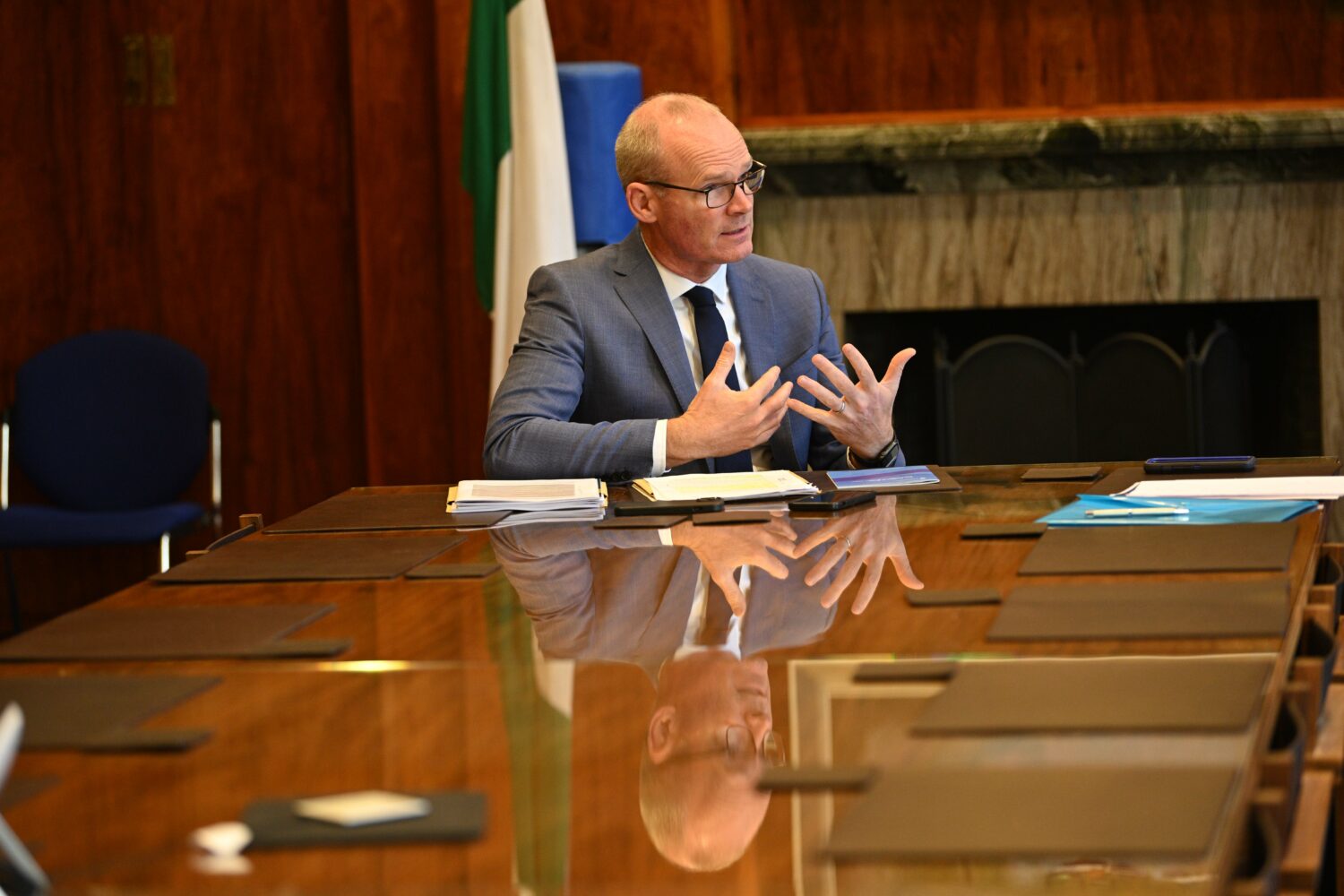With its dark wood panelled corridors, bronze doors, art deco windows, and stern grey exterior, the home of the Department of Enterprise, Trade and Employment cuts an imposing presence. There is an element of communist chic about the place; motifs of muscular young men undertaking heavy-duty industrial work are even etched onto a balcony on the front of the Kildare Street building. It is all very Soviet. Arriving straight from the Dáil, Simon Coveney leads me to a first-floor boardroom that seems to roll on forever. Wood panelled, naturally, and immaculately maintained, the room has a large, stern picture of…
Cancel at any time. Are you already a member? Log in here.
Want to read the full story?
Unlock this article – and everything else on The Currency – with an annual membership and receive a free Samsonite Upscape suitcase, retailing at €235, delivered to your door.

